Frequently Asked Questions
FAQs
-
The first step for you and your treating therapist is treatment planning.
Your therapist will create a treatment plan after completing a detailed intake assessment.
Your therapist will help you understand the dynamics of the presenting concerns and how to manage them.
Your therapist will teach fundamentals of OCD or anxiety treatment.
Exposure and Response Prevention
You will create a hierarchy of exposures with your therapist. You will spend time in your session with your therapist sitting with your emotions until the level of distress you feel comes down.
Often - it can feel worse before it feels better, but it works! It is based on neurobiological principles; specifically, by exposing your brain long enough to anything, the brain will learn and create new pathways (a process called habituation).
It is very important in this work not to confuse difficulty with ineffectiveness. This work is difficult and very effective.
Moving Forward
You will work on the integration of the skills you learn into your daily life and will troubleshoot barriers as they present.
-
We do not accept any insurance at this time. This is to provide maximum quality care that is not dictated by insurance companies. We can provide a document called a SuperBill that you can submit to your insurance if you have out-of-network benefits. For many insurances - this may be 30-60% of the costs.
To determine what your insurance will cover, you can call your insurance and ask:
1.) Do I have out-of-network benefits?
2.) What is the reimbursement for 90791 (first assessment), 90837 (53+ minute session), and 90834 (37-52 minute session)?
-
Intake - $250
Follow-up (50 minute): $225
Follow-up (90 minute): $337.50
We are able to offer a superbill to submit for out of network benefits.
-
Both Dr. Iverson and Dr. Rozio are licensed clinical psychologists, holding doctorate degrees in clinical psychology. Amanda Nomicos is a Licensed Professional Counselor and Lisa Johnson is a licensed Associate Counselor. They all have completed advanced training in anxiety and OCD treatment, specifically Cognitive Behavioral Therapy (CBT), Inference Based Cognitive Behavioral Therapy (I-CBT), Exposure and Response Prevention (ERP) and Acceptance and Commitment Therapy (ACT) approaches. They all have experience with successfully treating patients with OCD and anxiety.
-
The length of time depends on the complexity of presenting problems. In general - you should start to feel relief in 3-6 sessions. For OCD treatment using Exposure and Response Prevention, a full course of treatment typically takes 17-25 sessions for many patients; however, the length may vary depending on your individual needs. The ideal schedule is 90 minute sessions, 2x per week. Because this is not always possible due to schedule constraints, weekly 50-minute sessions are also effective (this will extend the length of treatment). Some patients may opt for maintenance sessions or depth-oriented therapy after this time.
-
We offer in-person sessions at our Scottsdale location - 7730 E Greenway Rd Ste 205, Scottsdale, AZ. The free treatment consultation is done by phone - and you can let your provider know at that time which you would prefer.
-
If you are choosing virtual sessions, you will need:
1.) A device that connects to the internet and has a camera and microphone (most laptops and tablets have this built-in). Headphones help to reduce feedback.
2.) It is strongly preferred you use an ethernet connection as opposed to a wi-fi connection to maximize internet efficiency. Connected via phone data tends to be the least stable connection.
3.) You will need to be in a quiet place without distractions.
-
Studies have show virtual treatment of OCD and anxiety is as effective as in-person sessions. You will receive a link to go to at the time of your appointment. Your therapist will start the meeting once you have entered the virtual wait room.
The benefits of virtual counseling include:
1.) No commute! You can meet with your therapist from the privacy, and safety, of your own home.
2.) Improved access to care
3.) Reduced risk of exposure to contagious illness
Risks of virtual therapy:
1.) Missing some aspects of body language.
2.) Potential for lost connection during exposures
-
Want to know more about OCD treatment? Here are some of our favorite resources:
https://iocdf.org/about-ocd/ocd-treatment/
This website is great at providing specific handouts and brochures for various types of OCD:
https://iocdf.org/brochures-and-fact-sheets/
Here is a specific handout that provides an overview of OCD:
https://iocdf.org/wp-content/uploads/2014/10/What-You-Need-To-Know-About-OCD.pdf
Great Video Overview of OCD:
https://www.youtube.com/watch?v=_FqUp4JA27Q
Videos Made By People With OCD:
https://www.youtube.com/watch?v=3kc5ObAQUkI
https://www.youtube.com/watch?v=akJBTm4fKBw
Podcasts:
OCD Stories: https://theocdstories.com/
Minded View: https://www.drtheagallagherpsyd.com/mindinview
https://podcasts.apple.com/us/podcast/mind-in-view/id1544156706
-
Because a slot is help exclusively for you, there is a fee for late cancelling (less than 24 hours prior to the appointment) and no-shows are charged the full session fee.

